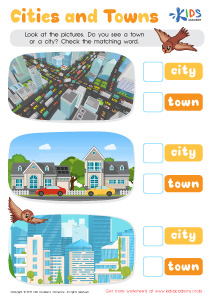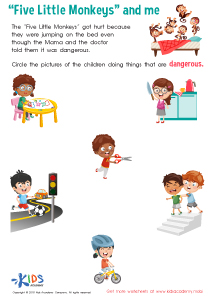Fine Motor Skills Easy Reading Comprehension Worksheets for Ages 7-9
6 filtered results
-
From - To
Enhance your child's learning experience with our Fine Motor Skills Easy Reading Comprehension Worksheets designed specifically for ages 7-9. These engaging resources combine reading comprehension exercises with fun fine motor activities to help strengthen coordination and dexterity while boosting reading skills. Each worksheet features age-appropriate texts followed by simple questions and activities that promote critical thinking. Perfect for home or classroom use, these worksheets offer a balanced approach that nurtures both literacy and motor skill development. Discover the joy of learning with our comprehensive collection, ensuring your child gains confidence and proficiency in reading comprehension and fine motor skills. Start exploring today!
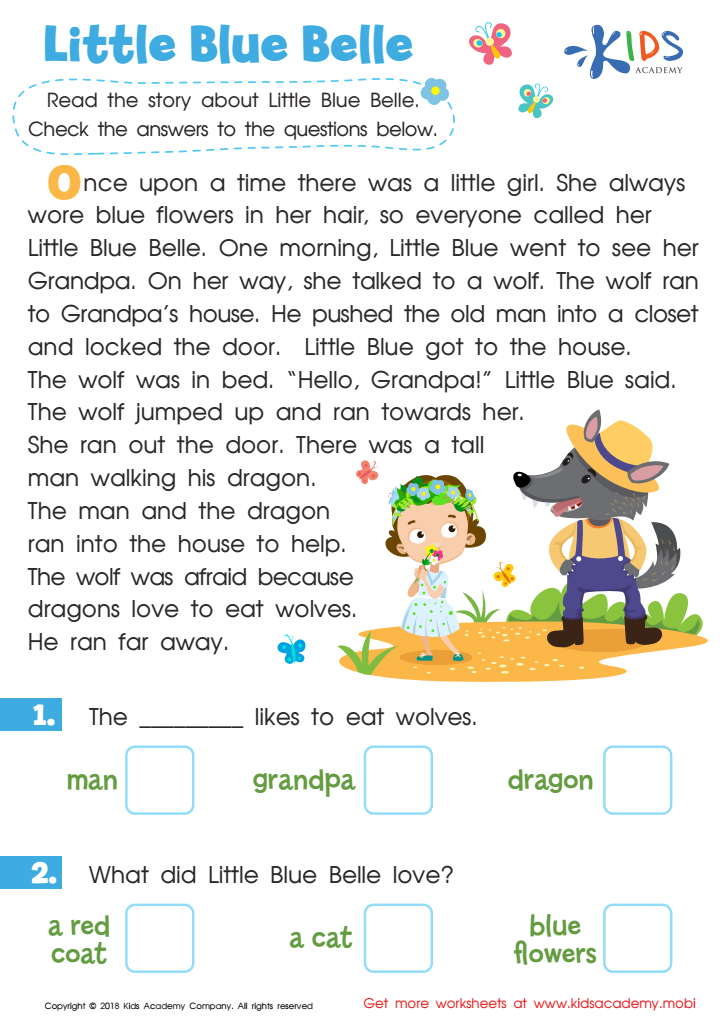

Little Blue Belle Worksheet


More Octopus Facts Worksheet
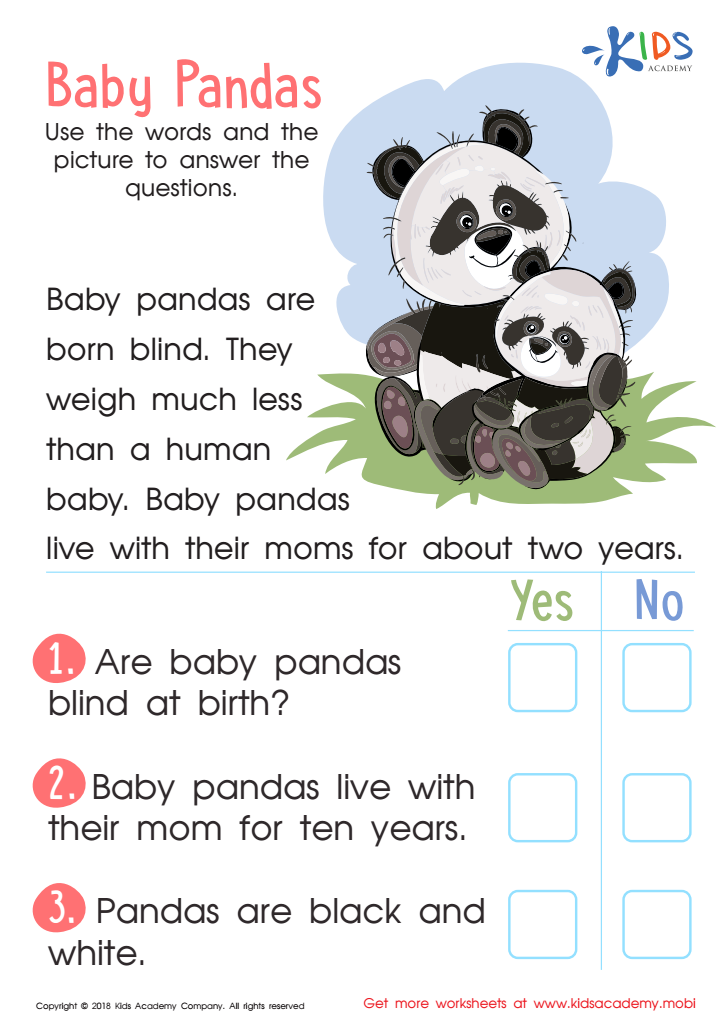

Baby Pandas Worksheet
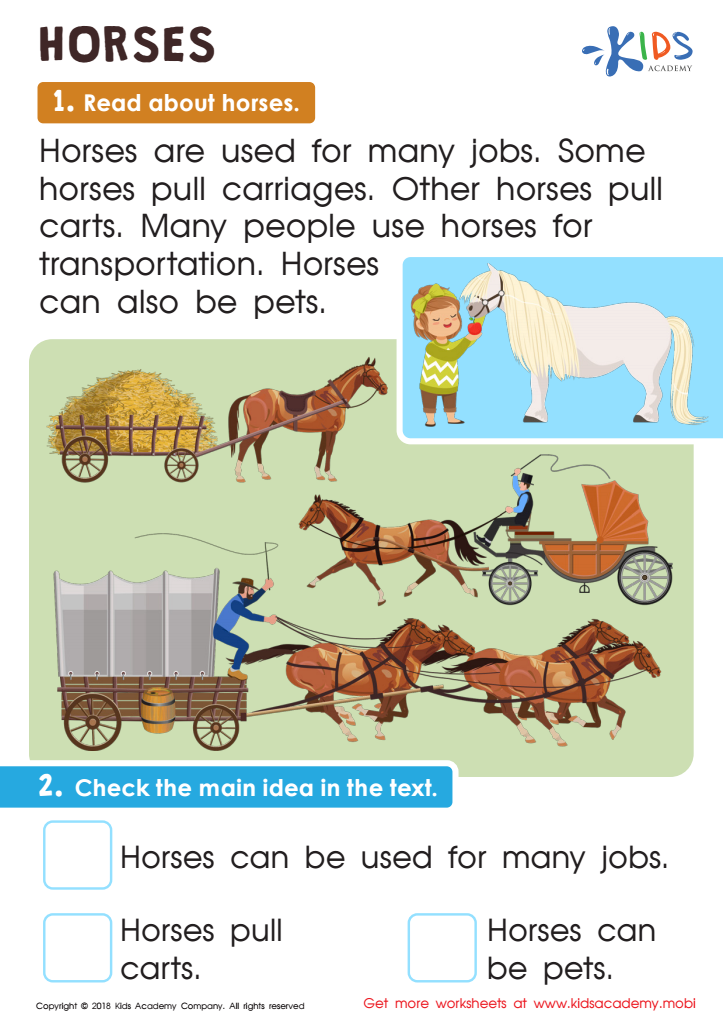

Horses Worksheet
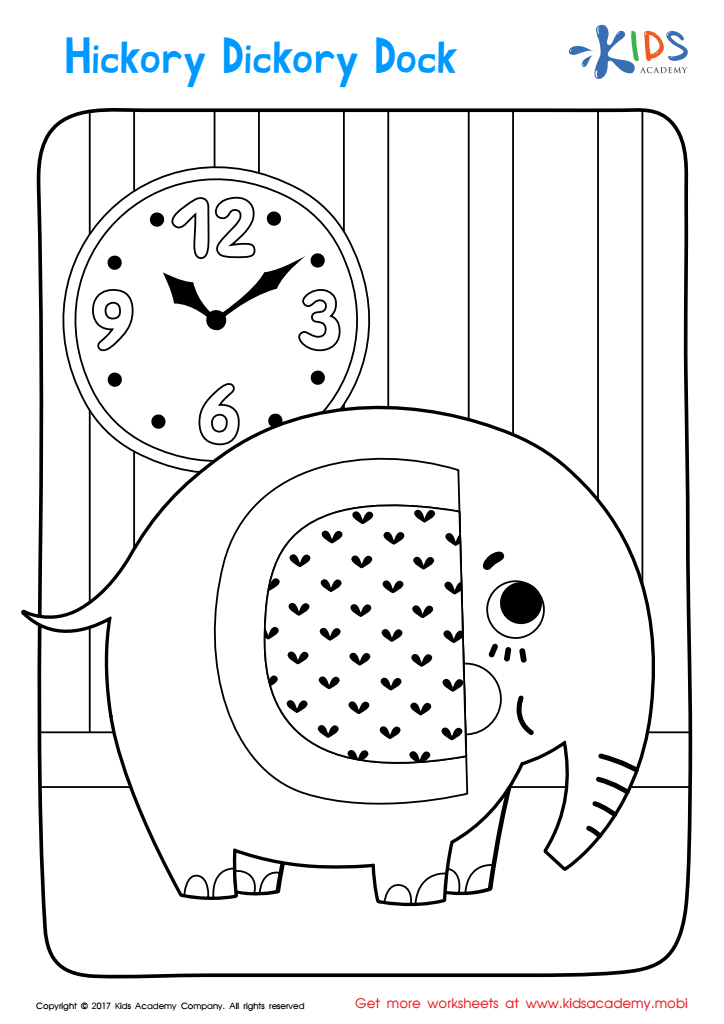

Hickory Dickory Dock Coloring Page
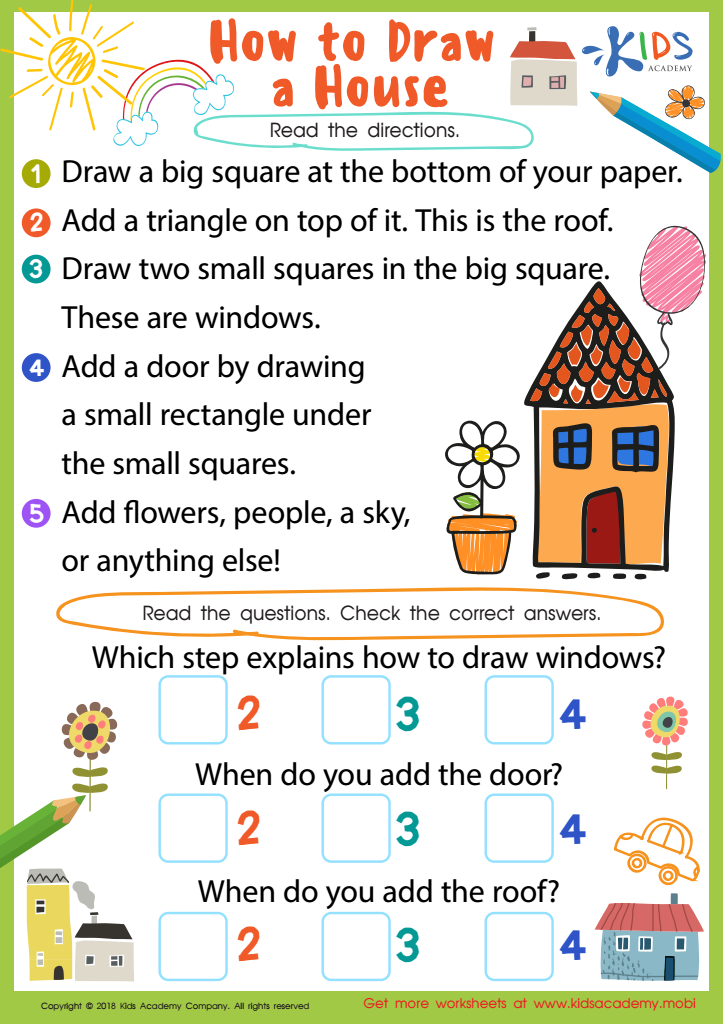

How to Draw House Worksheet
Fine motor skills are essential for children aged 7-9 as they directly impact their academic success and everyday tasks. These skills involve the coordination of small muscles in the hands and fingers, enabling children to perform activities like writing, drawing, and using tools effectively. Since reading and writing are fundamental components of education, smooth fine motor abilities help improve handwriting, making it more legible and expressive.
Parents and teachers should pay attention to fine motor skills because as children progress through grades, handwriting legibility can influence their reading comprehension and overall confidence in their schoolwork. Children who struggle with fine motor tasks may find it challenging to organize thoughts on paper, leading to frustration and disengagement in learning.
Moreover, fine motor skills are linked to a child’s ability to complete self-care tasks, like buttoning shirts or tying shoelaces, fostering independence and self-esteem. Enriching fine motor activities—like crafting, drawing, or playing with construction toys—creates an engaging learning environment. Consequently, fostering strong fine motor skills lays the groundwork for academic achievement, personal success, and healthy development. Thus, investing time in enhancing these abilities is vital for both parents and educators.
 Assign to My Students
Assign to My Students













